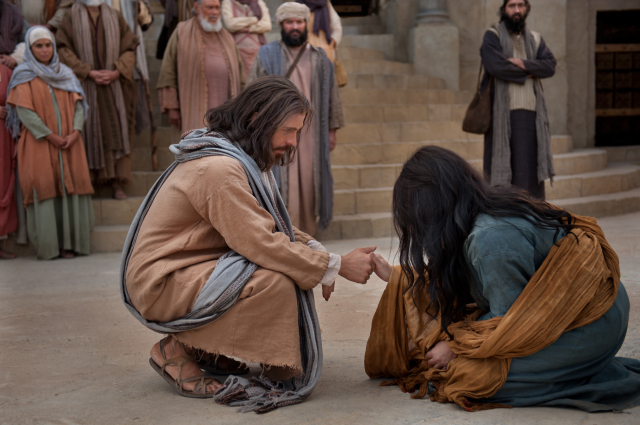Question
Gramps,
I have a question. I was talking to my friend last night about anger. She suggested that anger is a complete sin. I have been thinking about anger and righteous anger. We know that God has indignation and that is righteous anger. So are we allowed to have righteous anger and is anger a sin? What is the difference between the two?
Elisha
Answer
Dear Elisha,
Anger is a much misunderstood emotion. If you lost your house to a fire, you might think of fire as a bad thing. While it is true that fire can destroy property and take life, it can also save life. Fire can annihilate a forest or it can be used to prepare a meal. Fire can destroy or fire can cleanse. When fire is carefully contained and controlled it is very useful for many different applications. Similarly, uncontrolled anger can be a very destructive, i.e. bad thing. You will seldom, if ever, hear our leaders speak of anger in a positive way because anger is so often used destructively, and this is something our leaders want to warn us about. Uncontrolled anger has destroyed families and lives. It is good that our leaders caution us about it’s destructive potential.
However, like fire, anger has its place if it is carefully controlled. Anger itself is not the problem. What we do with that anger is where the potential for danger lies. As in all things Christ is our example in how to deal with anger. Remember when He cleansed the temple in Matthew 21:
12 And Jesus went into the temple of God, and cast out all them that sold and bought in the temple, and overthrew the tables of the moneychangers, and the seats of them that sold doves,
13 And said unto them, It is written, My house shall be called the house of prayer; but ye have made it a den of thieves.
14 And the blind and the lame came to him in the temple; and he healed them.
Some Biblical scholars say that Christ was angry on this day because people were being taken advantage of. Sometimes people traveled long distances to come to the temple, as due to the distance or poverty they were not able to bring an animal for sacrifice. Thus, they needed to purchase a suitable animal at the temple. First though they had to exchange their money, with Ceasar’s image on it, to temple money. The men making this exchange were charging an unfair amount to do this. Then the temple patron had to purchase an animal, and the animal sellers were also charging unfair prices. Christ was very displeased that the poor were being taken advantage of in this manner. So he made a whip, he overturned tables, He got their attention. But notice what Matthew says happened next, He then healed the blind and lame. His anger was appropriate. It moved Hiim to action against the wrong doers, but He was not out of control. He did not then lash out at the blind and lame also, but lovingly healed them. You see, the trouble with us is that many of us, in our weakness and anger we lash out at the innocent. We yell at those we love, we swear, we throw things and we “kick the dog”.
Another thing we can learn from this passage, was that Christ didn’t stay angry. That is the another problem we often have with anger, instead of being a temporary tool to right wrongs, we allow it to move in and take up residence in our hearts. We allow it to “counsel” us and override our normal wisdom. This is also a problem to watch out for.
So with all its potential for trouble is anger a sin? No. As Christ showed us, sometimes anger is appropriate and can move us to action. Imagine that you are in the store and you see a man hitting a woman repeatedly. What is the appropriate response? To turn away and say, “I forgive him.” No. Anger would likely rise up and move you to do something. That is a good thing. Now, what you might do, will vary. I’m not saying you should step in and become the man’s next victim, but you could certainly call for help. Many years ago, when the Twin Towers were attacked, Americans were angry. Understandably so, we had been attacked. That kind of anger is not a sin.
Some people are more prone to get angry than others, and some have more difficulty reigning it in than others. So is that anger a sin? Only the Lord can really judge that, but I think it’s mostly likely a weakness not a sin. Weakness is not sin. Wendy Ulrich, an LDS Psychologist, described it this way:
“We might define weakness as the limitation on our wisdom, power, and holiness that comes with being human. As mortals we are born helpless and dependent, with various physical flaws and predispositions. We are raised and surrounded by other weak mortals, and their teachings, examples, and treatment of us are faulty and sometimes damaging. In our weak, mortal state we suffer physical and emotional illness, hunger, and fatigue. We experience human emotions like anger, grief, and fear. We lack wisdom, skill, stamina, and strength. And we are subject to temptations of many kinds.
. . . We cannot simply repent of being weak—nor does weakness itself make us unclean. We cannot grow spiritually unless we reject sin, but we also do not grow spiritually unless we accept our state of human weakness, respond to it with humility and faith, and learn through our weakness to trust in God. When Moroni fretted about the weakness of his writing, God did not tell him to repent. Instead, the Lord taught him to be humble and to have faith in Christ. As we are meek and faithful, God offers grace—not forgiveness—as the remedy for weakness. Grace is an enabling power from God to do what we cannot do on our own (see Bible Dictionary, “Grace”)—the appropriate godly remedy by which He can “make weak things become strong.” It Isn’t a Sin to Be Weak
So we see that anger is not easily defined. It may cause us to sin, but by itself it is not a sin. It’s a complex and very human emotion that we need to learn to harness and use in the manner the Lord directs us.
Gramps







